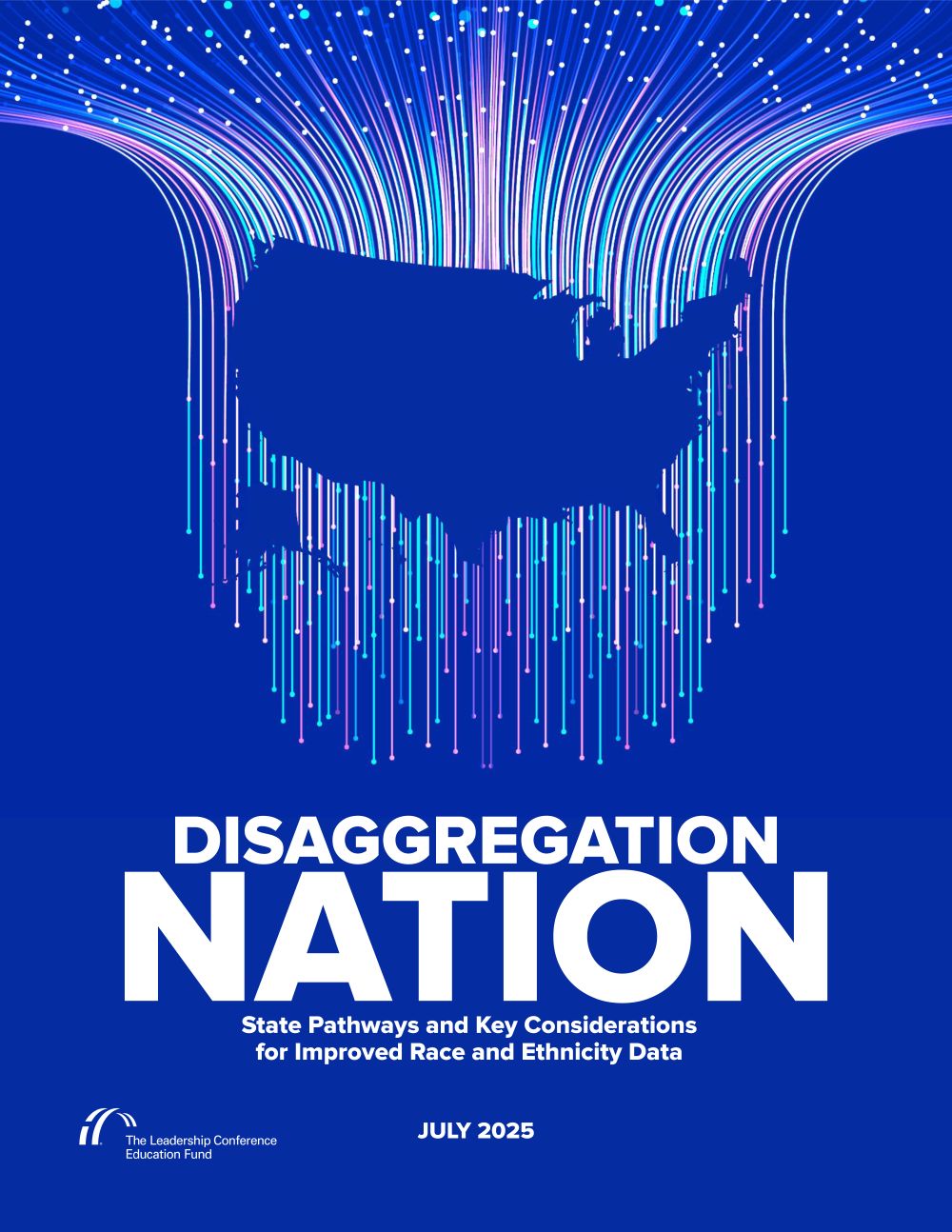Laws
Connecticut Requires the Collection of Disaggregated Data for More than 60 Race and Ethnicity Categories (State Agencies)
A state law adopted in 2021 requires the Office of Health Strategy (OHS) to develop race, ethnicity, and language (REL) data collection standards to enable aggregation and disaggregation. Public Act No. 21-35. In response to the law, the OHS produced Race, Ethnicity, and Language Standards, an Implementation Plan, and an Implementation Guide Report.
The REL Data Collection Standards report (pages 7-11) provides collection standards for state agencies, boards, or commissions that collect data concerning the ancestry or ethnic origin, ethnicity, race, or primary language of residents of the state in the context of health care or for the provision or receipt of health care services or for any public health purpose. Effective January 1, 2022, patients will be asked to self-identify race and ethnicity from a list of more than 60 race and ethnicity categories in the OHS standards.
Hispanic/Latino/a/ Spanish
- Argentinian
- Chilean
- Columbian
- Cuban
- Dominican
- Ecuadorian
- Guatemalan
- Honduran
- Mexican, Mexican American, Chicano/a
- Nicaraguan
- Panamanian
- Peruvian
- Puerto Rican
- Salvadorian
- Spaniard
- Spanish
- Uruguayan
- Venezuelan
- Other Spanish
Not Hispanic/ Latino/a/Spanish
American Indian or Alaska Native
- Alaska Native
- Cherokee
- Iroquois
- Mashantucket Pequot
- Mohegan
- Other American Indian or Alaska Native
Asian
- Asian Indian
- Bangladeshi
- Burmese
- Cambodian
- Chinese
- Filipino
- Hmong
- Indonesian
- Japanese
- Korean
- Laotian
- Malaysian
- Nepalese
- Pakistani
- Sri Lankan
- Taiwanese
- Thai
- Vietnamese
- Other Asian
Black or African American
- African
- African American
- Dominican
- Haitian
- Jamaican
- West Indian
- Other Black or African American
Native Hawaiian or Other Pacific Islander
- Guamanian or Chamorro
- Native Hawaiian
- Samoan
- Other Pacific Islander
White
- Arab
- European
- Middle Eastern or North African
- Portuguese
- Other White
Some other race
- Some other race
- Decline to identify
- Unknown/unsure/not disclose
A complementary law, adopted in 2015, requires all state forms to give the option to select one or more ethnic or racial designations. California Government Code § 8310.9
A new law, effective January 1, 2024, makes California the first state to collect data on Black populations by ancestry/lineage. Government Code § 8310.6 (AB 189). The law requires the state Controller’s Office and Department of Human Resources, when collecting demographic information from applicants, to add categories for:
- “African Americans who are descendants of persons who were enslaved in the United States”;
- “Blacks who are not descendants of persons who were enslaved in the United States, including, but not limited to, African Blacks, Caribbean Blacks, and other Blacks”; and
- “Unknown or choose not to identify”.
The law provides the following definitions:
- “African Americans who are descendants of persons who were enslaved in the United States” means individuals who self-identify as Black, African American, or American Freedman who have at least one ancestor who was enslaved in the United States.
- “African Blacks” means individuals who self-identify as Black and who either immigrated directly from Africa to the United States or who are descendants of such a person and who have no ancestors who were enslaved in the United States.
- “American Freedmen” means persons who gained freedom from slavery in the United States or their descendants.
- “Caribbean Blacks” means individuals who self-identify as Black and who either left Africa for a Caribbean country before immigrating to the United States or who are descendants of such a person and who have no ancestors who were enslaved in the United States.
- “Other Blacks” means individuals who self-identify as Black and who either left Africa to a country not in the Caribbean before immigrating to the United States or who are descendants of such a person and who have no ancestors who were enslaved in the United States.
Additionally, the state’s maternal mortality review committee is required to submit a report of disaggregated data. Section 19a-59i. Such report may include recommendations to reduce or eliminate racial inequities and other public health concerns regarding maternal mortality and severe maternal morbidity in the state.
Bills
Two bills died in the legislature related to data disaggregation.
In 2018, SB 395 (died in committee) would have banned the collection of disaggregated student data on specific ethnic subgroups unless such student data is required by federal law or collected uniformly across the entire population of students.
In 2022, HB 5282 was introduced to include Asian American and Pacific Islander studies in the public school curriculum and to prohibit the collection of disaggregated student data on specific ethnic subgroups unless such student data is required by federal law or collected uniformly across the entire population of students. The bill was tabled and never passed.
Other
Prior to the adoption of Public Act No. 21-35, two reports were written about race/ethnicity data:
- The Connecticut Health Foundation wrote a blog post about race/ethnicity data: https://www.cthealth.org/latest-news/blog-posts/lets-get-rel-health-equity-data/
- The same author wrote a report on “Data to Promote Health Equity for Children and Families in Connecticut”: https://ctvoices.org/publication/data-to-promote-health-equity-for-children-and-families-in-connecticut/

